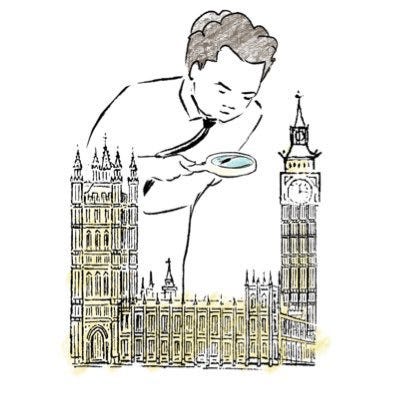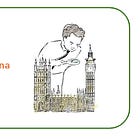PM pressed on China links to universities, press gets to visit spy site, Xinjiang Committee session
A Beijing to Britain briefing
Hello, 新年好, 恭喜发财 friends,
Thank you for the kind words and feedback on our newest offering, ‘The Beijing Debrief’. I’m always keen to hear how we can tweak and improve these sorts of notes, so do get in touch if you have a view.
I would like to draw attention to a short evidence note hiding away on a Committee website. The Business and Trade Subcommittee this week published its response to the Government’s Call for Evidence on the National Security and Investment Act 2021. As readers may recall, the NSIA gives the Government the power to scrutinise - and intervene in if necessary - certain investments from foreign entities in specific sectors. There is currently a consultation trying to source feedback and views on how it’s working.
The BTC’s evidence is comprehensive and useful in terms of understanding where one of the most influential Committees sits on the issue. In short: they think the UK is falling behind partners and allies, should learn lessons from America’s CFIUS, and ultimately risks becoming a backdoor “through which our adversaries acquire capabilities that imperil NATO Allies’ collective security.” The evidence cites the Biden Administration’s own work at length when it produces recommendations for the British Government.
The document also calls for the addition of two new standalone sectors to be added and monitored: semiconductors and critical minerals. Notably too, given how far behind the British debate is on biotechs and similar when compared to the US, it wants “measures to protect industry, intellectual property and sensitive data relating to the UK biosecurity industry, including genomics (which is not specifically mentioned under the current secondary legislation), whether through the creation of a standalone sector or inclusion in another sector.”
I would keep an eye on this - of all the evidence the NSIA survey will return, I suspect the BTC’s will carry the most significant political weight. And unlike many of the other responders, they have a unique ability to push the Government for answers.
- Sam Hogg, Editor
In this week’s briefing, we examine:
Parliament’s discussions on China, including the public mention of a British university audit
A Foreign Affairs Committee session on Xinjiang
AUKUS Pillar II and other international affairs
Diplomacy Tracker
Anne-Marie Trevelyan, the UK’s Indo-Pacific Minister, met with Sri Lankan High Commissioner HE Rohitha Bogollagama to discuss the country’s economic recovery and the UK’s “concerns with the recently passed Online Safety Act.”The UK-Japan 21st Century Group met, which included Japanese Prime Minister Fumio Kishida.Investment Minister Dominic Johnson launched the ‘Investment Cooperation Dialogue’ alongside Byoung-Hwan Kim, Korea's Vice Minister for Economy and Finance, “encouraging greater levels of Korean capital into the UK.”Labour’s Shadow Foreign and Business Secretaries were in New Delhi. David Lammy and Jonathan Reynolds met External Affairs Minister Dr. S. Jaishankar. The latter also met Commerce and Industry Minister, Piyush Goyal.38 Malaysians successfully completed their Masters in the UK under the Chevening Awards, and have returned home “to help realise Malaysia’s vision and potential.”Politics
Downing Street was again accused of sitting on information about the UK’s exposure to the Chinese Communist Party. During Prime Minister’s Questions on Wednesday, IPAC MP and former SNP Defence spokesperson Stewart McDonald revealed for the first time to the House that “the Prime Minister and other senior Ministers were given the conclusions of a Government audit of research programmes at UK universities with links to the Chinese state. The audit flagged up hundreds of programmes as being at high risk of potentially being used by the Chinese Communist party for military use, and other applications in strategic and sensitive areas as being of high interest to an authoritarian regime such as China. A smaller proportion was judged to be extremely high risk.” Could Prime Minister Rishi Sunak confirm he had seen the results, and what action had he taken, asked McDonald. “We will continue to take a robust and proactive approach towards our relationship with China”, replied the Prime Minister, dodging the content of the question. McDonald consequently sent a letter calling for an explicit answer, which can be read here, and The Times followed up briefly.
Why it matters: Perceptions are important in politics, and the perception that has set in across Westminster is that Sunak is soft on Chinese security-related issues. Away from the gaze of Parliament, many leading universities have been working hard on these issues for a number of years with varying levels of engagement and success with Government and the wider security apparatus, including units like RCAT. Issues around resourcing and funding are often raised, and there are frustrations with how the media covers the ongoing saga too.
Elsewhere, the situation in the Red Sea continued to use political bandwidth in Parliament. On Monday, MPs received a further update on the UK’s strategy for the region. This prompted some MPs to question if the United Kingdom’s navy is in the position of being overstretched - “because of tensions with China and Russia—maybe even Argentina in future”, per the DUP’s Sammy Wilson. In the Lords, Viscount Waverley pushed on maritime routes and the region, asking “Am I right in thinking that the Chinese are considering investing in the management of that port [Berbera in Somaliland]? Is the Minister considering setting up discussions with the Chinese interests to set out a beneficial rulebook as to how we can avail ourselves of that port for our own affairs as well?” Defence Minister Earl of Minto responded “This situation is potentially so damaging to the world’s trade—and it must be damaging the Chinese more than anyone, I would have thought—that there will definitely be countries and groups of countries that will look very carefully at where we could get bases from. Of course, we have a very successful base in Cyprus, and the Chinese are all over the east coast of Africa as we know, but the point is well made.”
A note was circulated alleging that the Civil Aviation Administration of China “made a unilateral announcement on January 30 in effect revoking the 2015 cross-strait agreement on the M503, W122, and W123 flight routes.” Labour’s Chair of the International Development Select Committee Sarah Champion tweeted “China’s increasingly making incursions in #Taiwans airspace. Now it’s unilaterally announced effectively revoking cross-strait agreement, breaching icao rules UK needs to strongly condemn these bullying tactics.” The Government confirmed in a response to Labour’s Navendu Mishra (a Labour Friends of Taiwan member) that the Department for Business and Trade (DBT) is currently working on an Enhanced Trade Partnership with Taiwan.




